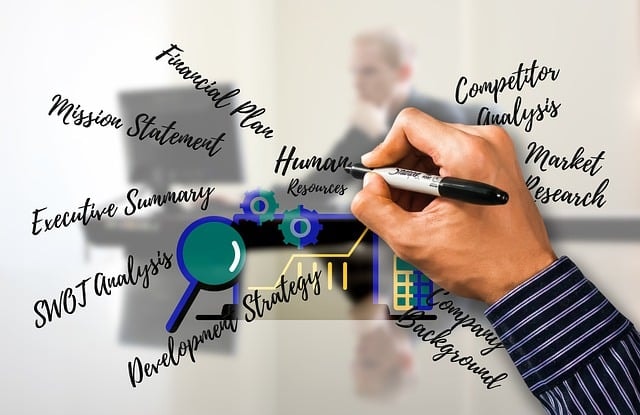Artificial Intelligence (AI) is not just a buzzword; it's the engine driving innovation across industries. As we look towards 2025, the landscape of AI is set to transform dramatically. This article delves into the next best AI trends that will shape the future, offering insights into how AI models, generative AI, and AI systems will redefine our world.
Key Takeaways:
- AI's Role in Everyday Life: AI will increasingly integrate into daily activities, enhancing productivity and decision-making.
- Generative AI and Multimodal Models: These technologies will revolutionize content creation and knowledge management.
- Responsible AI and Ethical Considerations: As AI adoption grows, ethical AI development will become paramount.
The Rise of Generative AI
Generative AI is set to take center stage by 2025, transforming how we create and interact with content. These AI models can produce text, images, and even music, offering a new dimension to creativity. Companies like OpenAI and Google are leading the charge, developing AI tools that can generate human-like text and realistic images. This technology is not just about creating content; it's about enhancing human creativity and productivity.
In the business world, generative AI will streamline processes by automating content generation, reducing the need for human intervention in mundane tasks. For instance, AI-powered systems can draft reports, create marketing materials, and even generate code, allowing professionals to focus on more complex tasks. As AI technology evolves, we can expect more organizations to adopt these tools, driving significant productivity gains.
AI Models and Multimodal AI
AI models are becoming increasingly sophisticated, with multimodal AI leading the charge. These models can process and understand multiple types of data, such as text, images, and audio, simultaneously. This capability is crucial for applications like autonomous vehicles, where AI systems must interpret various data streams to make real-time decisions.
Multimodal AI is also making waves in the healthcare industry. AI agents can analyze medical images, patient records, and genetic data to provide comprehensive insights into patient health. This integration of diverse data types allows for more accurate diagnoses and personalized treatment plans, revolutionizing fields like precision medicine and clinical trials.
AI in Materials Science and Natural Sciences
AI's impact extends beyond traditional industries, reaching into the natural sciences and materials science. AI models are being used to simulate chemical reactions, predict material properties, and even discover new compounds. This capability accelerates scientific discovery, enabling researchers to explore a broader range of possibilities in less time.
In materials science, AI tools are helping scientists design new materials with specific properties, such as increased strength or conductivity. These innovations have applications in various fields, from electronics to renewable energy. By leveraging AI technology, researchers can push the boundaries of what's possible, leading to breakthroughs that were once thought unattainable.
Responsible AI and Ethical Considerations
As AI systems become more integrated into society, the importance of responsible AI development cannot be overstated. AI companies must prioritize ethical considerations, ensuring that AI models are designed to enhance human well-being and do not perpetuate biases or discrimination. This involves using synthetic training data to train AI models, minimizing the risk of biased outcomes.
Regulated industries, such as finance and healthcare, are particularly sensitive to these issues. AI adoption in these sectors requires stringent oversight to ensure compliance with ethical standards. Industry experts are advocating for transparent AI platforms that allow for minimal human intervention while maintaining accountability. This balance is crucial for building trust in AI applications and ensuring their long-term success.
AI in Weather Forecasting and National Security
AI's ability to handle complex tasks makes it invaluable in fields like weather forecasting and national security. AI-powered systems can analyze vast amounts of unstructured data to predict weather patterns with greater accuracy. This capability is essential for mitigating the impacts of natural disasters and planning for climate change.
In national security, AI agents are used for threat detection and decision-making. These systems can process intelligence data, identify potential threats, and recommend actions to prevent security breaches. The rapid evolution of AI technology in this area underscores its importance in maintaining global stability and protecting human health.
AI Platforms and Vector Databases
AI platforms are evolving to support the growing demand for AI applications. Vector databases, which store data in a format that AI models can easily process, are becoming increasingly popular. These databases enable faster and more efficient model training, allowing AI systems to learn from large datasets quickly.
The use of vector databases is particularly beneficial for AI reasoning and knowledge management. By organizing data in a way that AI models can understand, these platforms facilitate more accurate and insightful analyses. This capability is crucial for businesses seeking to leverage AI for strategic decision-making and gaining a competitive edge in the market.
AI in Software Development and Code Generation
AI is revolutionizing software development by automating code generation and testing. AI copilots, like GitHub's Copilot, assist developers by suggesting code snippets and identifying potential errors. This support reduces the time and effort required to build software, allowing developers to focus on innovation and problem-solving.
The integration of AI in software development also enhances productivity by automating repetitive tasks. AI tools can generate boilerplate code, conduct code reviews, and even optimize algorithms for performance. These advancements enable developers to deliver high-quality software faster, meeting the growing demand for digital solutions.
AI in Financial Markets and Fraud Prevention
AI's ability to analyze huge amounts of data makes it a powerful tool in financial markets. AI systems can identify trends, predict market movements, and optimize investment strategies. This capability allows financial institutions to make informed decisions and maximize returns.
Fraud prevention is another area where AI is making a significant impact. AI models can detect unusual patterns in transaction data, flagging potential fraudulent activities. By leveraging AI technology, financial institutions can protect themselves and their customers from financial losses, enhancing trust and security in the industry.
AI in Human Health and Precision Medicine
AI is transforming healthcare by enabling precision medicine and improving patient outcomes. AI models can analyze genetic data, medical records, and lifestyle information to provide personalized treatment plans. This approach ensures that patients receive the most effective therapies, reducing the risk of adverse reactions and improving recovery rates.
In addition to treatment, AI is also enhancing disease prevention and early detection. AI-powered systems can identify risk factors and recommend preventive measures, helping individuals maintain their health and avoid serious illnesses. These innovations are paving the way for a healthier future, where AI plays a central role in human health.

AI in Energy Efficiency and Scientific Discovery
AI is driving energy efficiency by optimizing resource use and reducing waste. AI systems can analyze energy consumption patterns and recommend strategies for improving efficiency. This capability is crucial for businesses seeking to reduce costs and minimize their environmental impact.
In scientific research, AI is accelerating discovery by automating data analysis and hypothesis testing. AI models can process large datasets, identify patterns, and generate insights that would be impossible for humans to uncover alone. This ability to handle complex tasks is revolutionizing fields like physics, chemistry, and biology, leading to groundbreaking discoveries.
AI in Content Generation and Everyday Life
AI is becoming an integral part of everyday life, enhancing productivity and creativity. AI-powered tools can generate content, such as articles, videos, and music, with minimal human intervention. This capability allows individuals and businesses to produce high-quality content quickly and efficiently.
In addition to content generation, AI is also improving decision-making and problem-solving. AI systems can analyze data, identify trends, and recommend actions, helping individuals and organizations make informed decisions. As AI technology continues to evolve, its impact on everyday life will only grow, offering new opportunities for innovation and growth.
AI in Regulated Industries and Export Controls
AI's integration into regulated industries, such as healthcare and finance, requires careful consideration of export controls and compliance. AI companies must navigate complex regulations to ensure their products meet legal and ethical standards. This involves working closely with regulators and industry experts to develop AI systems that are both innovative and compliant.
Export controls are particularly important for AI technologies with potential military applications. Governments are implementing measures to prevent the misuse of AI in national security, ensuring that AI development aligns with international norms and agreements. These efforts are crucial for maintaining global stability and promoting responsible AI use.
AI in Artificial General Intelligence and Frontier Models
The pursuit of artificial general intelligence (AGI) remains a key focus for AI researchers. AGI refers to AI systems that possess human-like reasoning and problem-solving abilities. While we are still far from achieving true AGI, early experiments with frontier models are paving the way for future advancements.
Frontier models, which push the boundaries of AI capabilities, are being developed to tackle complex tasks that require advanced reasoning and decision-making. These models are being tested in various domains, from scientific research to autonomous systems, offering a glimpse into the future of AI. As AI technology continues to advance, the dream of AGI may become a reality, transforming how we interact with machines and the world around us.

AI in Building Tools and Innovative Solutions
AI is revolutionizing the way we build tools and develop innovative solutions. AI-powered platforms enable developers to create applications that are more efficient, scalable, and user-friendly. These tools are being used across industries, from software development to manufacturing, driving productivity gains and enhancing business value.
In addition to building tools, AI is also enabling the development of innovative solutions to complex problems. AI systems can analyze data, identify patterns, and generate insights that lead to new products and services. This capability is crucial for businesses seeking to stay competitive in an ever-changing market, offering new opportunities for growth and success.
AI in Decision Making and Knowledge Management
AI is transforming decision-making and knowledge management by providing insights and recommendations based on data analysis. AI systems can process large datasets, identify trends, and suggest actions, helping organizations make informed decisions. This capability is particularly valuable in industries like finance, healthcare, and logistics, where data-driven decision-making is crucial for success.
In knowledge management, AI is enhancing the way organizations store, retrieve, and use information. AI-powered platforms can organize data, identify relevant information, and provide insights that improve decision-making and problem-solving. This ability to manage knowledge effectively is essential for businesses seeking to leverage their data for strategic advantage.
AI in Threat Detection and National Security
AI is playing a critical role in threat detection and national security by analyzing data and identifying potential risks. AI systems can process intelligence data, detect unusual patterns, and recommend actions to prevent security breaches. This capability is crucial for maintaining global stability and protecting human health.
In addition to threat detection, AI is also enhancing national security by improving decision-making and resource allocation. AI-powered systems can analyze data, identify trends, and recommend strategies for optimizing security measures. These innovations are essential for governments seeking to protect their citizens and maintain peace in an increasingly complex world.
AI in Scientific Research and Energy Efficiency
AI is accelerating scientific research by automating data analysis and hypothesis testing. AI models can process large datasets, identify patterns, and generate insights that would be impossible for humans to uncover alone. This ability to handle complex tasks is revolutionizing fields like physics, chemistry, and biology, leading to groundbreaking discoveries.
In energy efficiency, AI is optimizing resource use and reducing waste by analyzing energy consumption patterns and recommending strategies for improvement. This capability is crucial for businesses seeking to reduce costs and minimize their environmental impact. By leveraging AI technology, organizations can achieve significant energy savings and contribute to a more sustainable future.
AI in Clinical Trials and Human Health
AI is transforming clinical trials by improving patient recruitment, data analysis, and outcome prediction. AI models can analyze genetic data, medical records, and lifestyle information to identify suitable candidates for trials and predict treatment outcomes. This capability enhances the efficiency and effectiveness of clinical trials, leading to faster drug development and improved patient care.
In human health, AI is enhancing disease prevention and early detection by identifying risk factors and recommending preventive measures. AI-powered systems can analyze data, identify trends, and provide insights that help individuals maintain their health and avoid serious illnesses. These innovations are paving the way for a healthier future, where AI plays a central role in human health.
AI in Fraud Prevention and Financial Markets
AI is revolutionizing fraud prevention by detecting unusual patterns in transaction data and flagging potential fraudulent activities. AI models can analyze vast amounts of data, identify trends, and recommend actions to prevent financial losses. This capability enhances trust and security in the financial industry, protecting institutions and their customers from fraud.
In financial markets, AI is optimizing investment strategies by analyzing data and predicting market movements. AI systems can identify trends, recommend actions, and optimize portfolios, allowing financial institutions to make informed decisions and maximize returns. These innovations are essential for businesses seeking to stay competitive in an ever-changing market.
AI in Content Generation and Everyday Life
AI is becoming an integral part of everyday life, enhancing productivity and creativity. AI-powered tools can generate content, such as articles, videos, and music, with minimal human intervention. This capability allows individuals and businesses to produce high-quality content quickly and efficiently.
In addition to content generation, AI is also improving decision-making and problem-solving. AI systems can analyze data, identify trends, and recommend actions, helping individuals and organizations make informed decisions. As AI technology continues to evolve, its impact on everyday life will only grow, offering new opportunities for innovation and growth.

As we look towards 2025, the next best AI trends promise to reshape industries and redefine how we interact with technology. From generative AI and multimodal models to responsible AI and ethical considerations, these trends highlight the transformative power of AI. By embracing these innovations, businesses and individuals can unlock new opportunities for growth, productivity, and creativity.

Q1: What is generative AI, and how will it impact content creation?
Generative AI refers to AI models that can create content, such as text, images, and music, by learning from existing data. By 2025, generative AI will revolutionize content creation by automating processes and enhancing human creativity. This technology allows businesses to produce high-quality content quickly and efficiently, reducing the need for human intervention in mundane tasks.
Q2: How is AI transforming healthcare and precision medicine?
AI is transforming healthcare by enabling precision medicine and improving patient outcomes. AI models can analyze genetic data, medical records, and lifestyle information to provide personalized treatment plans. This approach ensures that patients receive the most effective therapies, reducing the risk of adverse reactions and improving recovery rates. AI is also enhancing disease prevention and early detection, paving the way for a healthier future.
Q3: What role does AI play in financial markets and fraud prevention?
AI plays a crucial role in financial markets by analyzing data, predicting market movements, and optimizing investment strategies. AI systems can identify trends, recommend actions, and optimize portfolios, allowing financial institutions to make informed decisions and maximize returns. In fraud prevention, AI models can detect unusual patterns in transaction data, flagging potential fraudulent activities and enhancing trust and security in the industry.
Your Friend,
Wade









